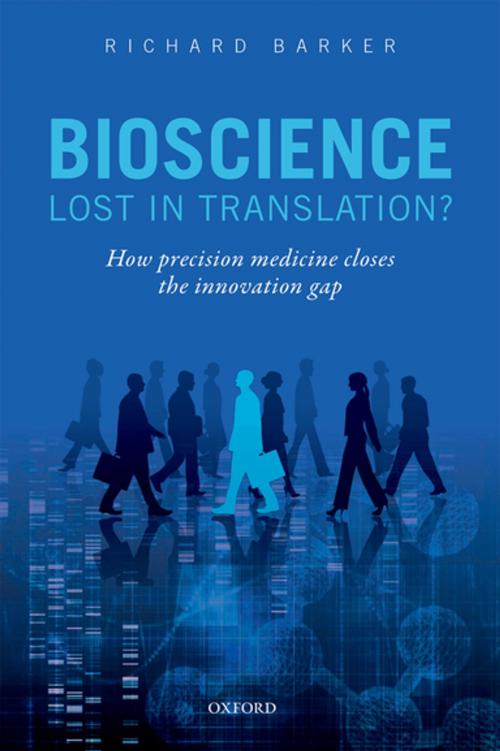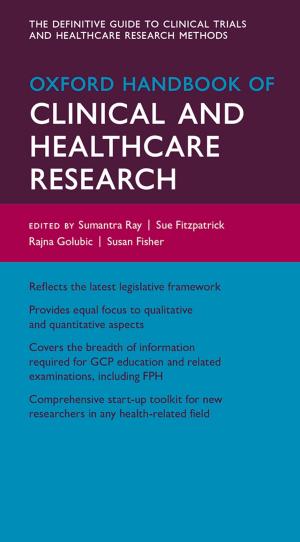Bioscience - Lost in Translation?
How precision medicine closes the innovation gap
Nonfiction, Health & Well Being, Medical, Reference, Health Policy, Science & Nature, Science| Author: | Richard Barker | ISBN: | 9780191057694 |
| Publisher: | OUP Oxford | Publication: | September 8, 2016 |
| Imprint: | OUP Oxford | Language: | English |
| Author: | Richard Barker |
| ISBN: | 9780191057694 |
| Publisher: | OUP Oxford |
| Publication: | September 8, 2016 |
| Imprint: | OUP Oxford |
| Language: | English |
Medical innovation as it stands today is fundamentally unsustainable. There is a widening gap between what biomedical research promises and the impact that it is currently achieving, in terms of patient benefit and health system improvement. This book highlights the global problem of the ineffective translation of bioscience innovation into health system improvements and its consequences, analyses the underlying causative factors and provides powerful prescriptions for change to close the gap. It contrasts the progress in biomedicine with other areas of scientific and technological endeavour, such as information technology, in which there are faster and more reliable returns for society. The author's career has spanned pharmaceuticals, diagnostics and health informatics and he draws lessons from a host of case examples in which bottlenecks have prevented progress, such as in dementia and antibiotic-resistant infections, and from many in which these barriers have been overcome, such as HIV therapy and targeted cancer treatment. The new era of precision medicine holds the greatest promise of closing this 'innovation gap'. Along with techniques such as open innovation and adaptive development, powerful new genomics and digital health tools are poised to transform the productivity of life sciences. Bioscience-Lost in Translation? lays out a fresh and provocative strategy for advancing the innovation process, shaping the right policy environment and building an ecosystem to deliver the 21st century cures that are urgently needed.
Medical innovation as it stands today is fundamentally unsustainable. There is a widening gap between what biomedical research promises and the impact that it is currently achieving, in terms of patient benefit and health system improvement. This book highlights the global problem of the ineffective translation of bioscience innovation into health system improvements and its consequences, analyses the underlying causative factors and provides powerful prescriptions for change to close the gap. It contrasts the progress in biomedicine with other areas of scientific and technological endeavour, such as information technology, in which there are faster and more reliable returns for society. The author's career has spanned pharmaceuticals, diagnostics and health informatics and he draws lessons from a host of case examples in which bottlenecks have prevented progress, such as in dementia and antibiotic-resistant infections, and from many in which these barriers have been overcome, such as HIV therapy and targeted cancer treatment. The new era of precision medicine holds the greatest promise of closing this 'innovation gap'. Along with techniques such as open innovation and adaptive development, powerful new genomics and digital health tools are poised to transform the productivity of life sciences. Bioscience-Lost in Translation? lays out a fresh and provocative strategy for advancing the innovation process, shaping the right policy environment and building an ecosystem to deliver the 21st century cures that are urgently needed.















